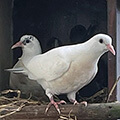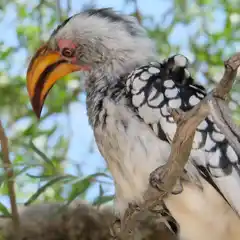







The microbial communities (microbiota) that colonise the gastrointestinal and respiratory systems can impact chicken health, and lead to changes in immune responses. Chickens are commonly raised without maternal contact and therefore are not exposed to a mature adult microbiota. To attempt to rectify this issue many farmers spray chicks with commercial probiotic mixtures of bacteria. One of the most common products used for this purpose is Aviguard. As Aviguard is delivered by spray onto chicks it is likely that their respiratory system is exposed to the product. This may impact their respiratory microbiota and the development of the respiratory immune system.
In this study we assessed the effect of Aviguard treatment on the respiratory and gut microbiota (via 16S sequencing), and the immune response to vaccination. Aviguard treatment affected the caecal and tracheal microbiota to a limited extent. However, most of the components of the Aviguard treatment were not observed in our samples, indicating that most of the bacteria in the treatment were not able to establish long-term colonisation of the chicken. Aviguard treatment did not have a significant effect on the lung microbiota. No effect of Aviguard treatment was observed on vaccine response.
Return to the Grants Awarded page.